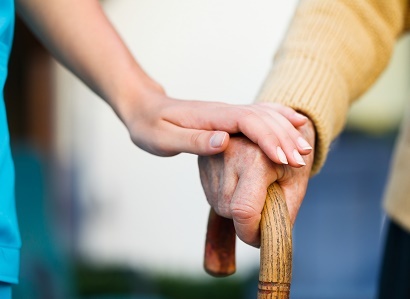
Substance abuse among older adults is increasing. It is estimated that 17% of older adults have substance abuse issues. Alcohol is the substance most abused, followed by the misuse of prescription medications. Among prescription medications, benzodiazepines (tranquilizers & sleeping pills) are the most abused.
Why the increase in substance abuse? People are living longer & more of them are abusing drugs & alcohol in their later years. Furthermore, the size of the baby boom population as well as their greater acceptance & experiences with using prescription medications & illicit drugs also contributes to the increase. More drugs are prescribed to older adults: They are more likely to receive prescriptions for medications with abuse potential, such as opioid analgesics for pain & benzodiazepines for sleep disorders & anxiety.
A national survey sponsored by the SAMHSA found that at all ages, women drink less than men, & older men are much more likely than older women to have alcohol-related problems. Older women are less likely to drink & less likely to drink heavily, but they are more likely than men to start drinking heavily later in life. Because older women are more likely than men to be prescribed psychoactive drugs, they are at a higher risk of becoming prescription drug dependent.
Getting older results in physical changes that can affect the way that substances affect the human body. As people age, substances may affect them more quickly & to a greater degree. They have increased sensitivity to alcohol & they can’t drink as much as they used to. Alcohol is processed more slowly in older bodies, so blood alcohol levels are higher for longer periods of time, resulting in increased risk of falls & other accidents.
Risk factors for substance abuse among older adults are social isolation, history of substance abuse, & a mental health disorder, particularly depression. Substance abuse is more prevalent among people who have experienced a number of losses, including death, retirement, independence, & health.
“Drinking alcohol or abusing medications can worsen many physical & mental problems, including diabetes, high blood pressure, congestive heart failure, liver problems, osteoporosis, memory problems, & mood disorders (National Institute of Alcohol Abuse)” Drinking can slow healing & recovery from injuries & surgeries & can make the symptoms of dementia get worse. Prolonged use of medications is associated with falls, depression, cognitive decline, apathy, decreased attention to activities of daily living, family conflict, decreased enjoyment in activities, & withdrawal from others. Substance abuse is also a risk factor for suicide among the elderly.
Many prescription & over-the-counter medications can be dangerous or even deadly when mixed with alcohol. Always discuss with your doctor whether or not it is safe to consume alcohol with your medications. Also make all of your doctors aware of all medications that you take, including over-the-counter medications & herbal supplements.
To decrease the risk of medication abuse or misuse, carefully follow the directions for use, using the correct dose & for the prescribed period of time. Never use another person’s prescription medication. Not only is this illegal, it is also very dangerous. Inform your doctor if you believe that your medication is not working. Do not take it upon yourself to take more than prescribed in an effort to make it “work”.
If you think that you may have a problem with substances, talk with your healthcare provider. He or she can inform you of treatment options & available resources.
--Submitted by Cheryl Solesbee, LISW-CP - Medical University of South Carolina


Comments